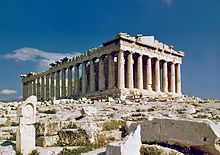Fall 2013 Interpreting the Past SINQs
We currently have three Sophomore Inquiry classes scheduled for the fall:
Our Fully Online Offering (pending funding)
Instructor: Alaric Trousdale, PhD
Medieval Heroes
What makes a hero? Are heroes all the same, or are they unique to the culture and time that produces them? Take Superman, for example; what is it that makes him uniquely American? The traits and behaviors that a culture idolizes and reveres in its heroes are especially relevant to the historian. In this course we will study the history and culture of Europe during the Middle Ages (c.400-1500 A.D), focusing specifically on the concept of the ‘hero’ as seen through saints lives, epic poetry and contemporary historical evidence. The course will also provide students with insights into using literature as a source of historical evidence, and how literature is studied by historians. The course encourages students to reflect upon the importance of the ideal, perfect ‘hero’ (and heroine) for understanding the values that cultures hold and to engage directly with selected key primary texts. Students will gain a basic grounding in the history of the European Middle Ages, a survey of medieval heroic literature, and expertise in what it meant to be a ‘hero’ to medieval Europeans.
Non Online Fall SINQs:

Instructor: George Armantrout, PhD
Ancient Greece
Our main theme will be to examine the ideas of Justice and Law in ancient Greece from the time of Homer down to the time of Plato (ca. 750-380 BCE). To this end we will be reading and discussing a variety of ancient texts. We will also consider the role of the divine and the role of the state in these matters. Since context is important, we will also be looking at other issues such as status and gender. A central concern will be how perceptions of these matters change through time.
Instructor: Leslie W. Batchelder, PhD
Seeing is Believing: Visual Culture in the Nineteenth Century
In this class we will examine visual culture of the Nineteenth century from photography, to advertising, to the experience of the built environment and urban cityscapes. We will discuss how artifacts of 19th century visual culture in turn helped to form and solidify modern European Identities.

